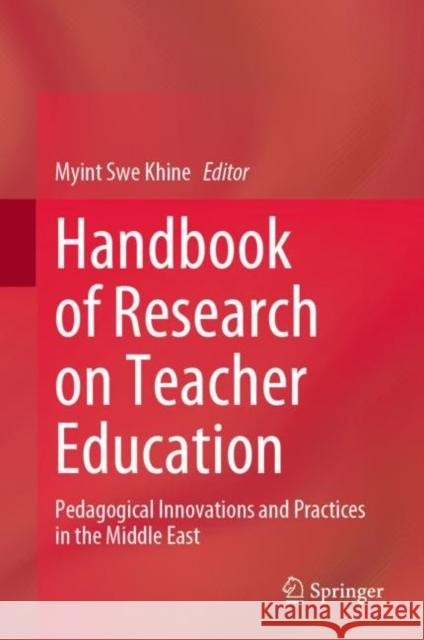Handbook of Research on Teacher Education: Pedagogical Innovations and Practices in the Middle East » książka
topmenu
Handbook of Research on Teacher Education: Pedagogical Innovations and Practices in the Middle East
ISBN-13: 9789811923999 / Angielski / Twarda / 2022
Handbook of Research on Teacher Education: Pedagogical Innovations and Practices in the Middle East
ISBN-13: 9789811923999 / Angielski / Twarda / 2022
cena 928,04
(netto: 883,85 VAT: 5%)
Najniższa cena z 30 dni: 848,19
(netto: 883,85 VAT: 5%)
Najniższa cena z 30 dni: 848,19
Termin realizacji zamówienia:
ok. 22 dni roboczych.
ok. 22 dni roboczych.
Darmowa dostawa!
This comprehensive book presents emergent findings and promising results in teacher education, curriculum, assessment, teaching and learning approaches, pedagogical innovations and practices, and professional development in educating the next generation of students. The volume reflects the current trends and highlights teacher education programs in all 14 MENA countries in one place. The chapters in this handbook discuss the challenges and the ways to improve teacher education by the educators in the Middle East region, including Bahrain, Egypt, Iran, Iraq, Jordan, Kuwait, Lebanon, Oman, Palestine, Qatar, Saudi Arabia, Syria, Turkey, United Arab Emirates, and Yemen. It also provides an extensive and rich reference for future comparisons across the countries. The book contains chapters written by experienced international teacher educators who draw on their experience and expertise to perennial issues and formidable challenges in teacher preparation and meaningful school reforms. This volume is a valuable resource and essential companion for teacher educators, faculty members, staff developers, trainee teachers, undergraduate and postgraduate students, researchers, school leaders, policy-makers, and professional learning communities to refresh their knowledge and improve their understanding. This book is a must-read for anyone interested in evolving issues in teacher education in the Middle East region.











